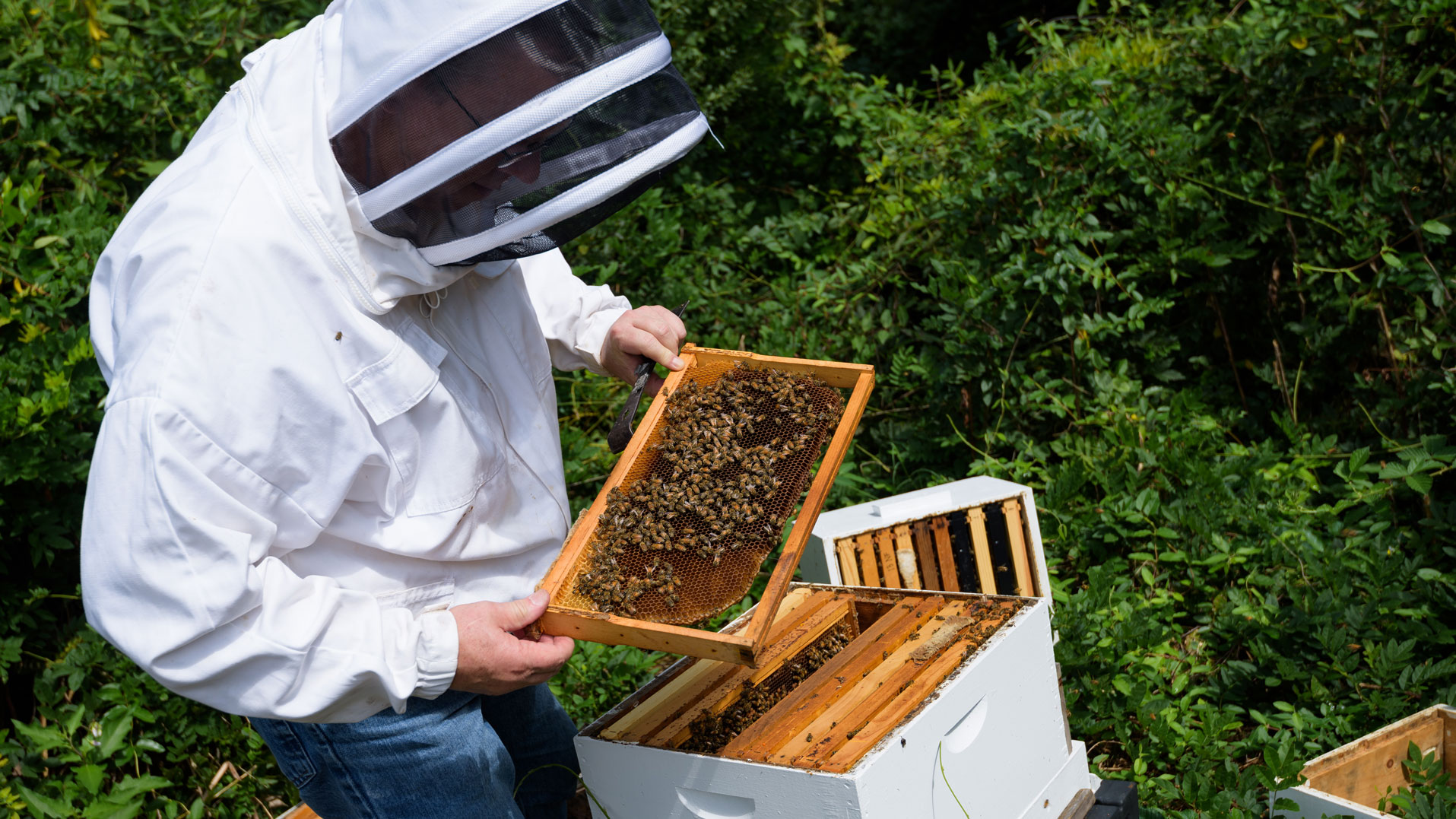New Conference Brings Veterinarians and Beekeepers Together

Two important issues came into focus during a recent two-day course offered by the NC State College of Veterinary Medicine’s Continuing Education program: the survival of the world’s honey bee population and the growing problem of antimicrobial resistance.
The Honey Bee Veterinary Consortium Conference brought together experts from NC State, private industry and around the world to discuss requirements for veterinarians working with honey bees by the Veterinary Feed Directive issued by the U.S. Food and Drug Administration. Because honey bees are classified as a food animal, they are of concern to veterinarians because of changes in FDA policy on antimicrobials. The conference focused the needs of large scale or hobbyist beekeepers regarding the VFD and disease management and educating veterinarians and apiarists on integrating veterinary care into beekeeping.
Jeff Applegate, clinical assistant professor of avian-exotic animal medicine at the CVM and an amateur beekeeper, helped launch the Honey Bee Veterinary Consortium.
“[The VFD] directive made it essential to include veterinarians in the care of honey bees as they never have been before in the U.S., in an effort to reduce antibiotic residues in products for human consumption — in this case honey,” said Applegate. The 18-month-old organization boasts 300 veterinarian members from 40 states and anticipates further growth.
In addition to an impressive group of domestic experts, the conference speakers included Nicolas Vidal-Naquet, lecturer in honey bee biology and diseases at the Veterinary School of Alfort, France, and author of Honey Bee Veterinary Medicine.

The college’s role in teaching doesn’t end with a student’s graduation.
There is a regular schedule of continuing education courses for practicing veterinarians, who are required to receive 20 hours of continuing education a year. These take the form of individual sessions throughout the year or multiple opportunities during the North Carolina Veterinary Conference, an annual meeting organized by the CVM’s CE team. The annual conference, scheduled this year from Nov. 2-4 at the Raleigh Convention Center, offers 144 hours of continuing education lectures from local and national speakers.
More information about the honey bee conference can be found here.
The Honey Bee Veterinary Consortium Conference is just one example of the many services provided by the CVM’s Office of Continuing Education, Outreach and Alumni Affairs, whose team includes Dane Johnston, director; Danielle King, assistant director; John Cole, program coordinator; and Janice Cofield, public information specialist.
The CE Office provides event and project management services for more than 30 programs annually, ranging from small internal meetings to large, multi-day conferences held locally and nationally. In addition to supporting continuing education programs and alumni outreach events, the CE Office works with external organizations and scientific associations to plan and manage industry-specific meetings and conferences. Clients have included the World Health Organization, the Federal Bureau of Investigation and the United States Army, the National Institutes of Health/National Institute of Environmental Sciences, and the American and European College of Veterinary Ophthalmologists.
The CE Office is capable of offering the following services for internal and external partners:
- Needs Assessment
- Strategic Planning
- Budget Forecasting and Account Management
- Site Selection and Vendor Contract Negotiation
- Program Agenda and Speaker Management
- Food and Beverage Planning
- A/V Coordination
- Event Marketing and Advertising
- Website Creation and Registration Monitoring
- Onsite Event Liaison
- Pre- and Post-Event Communication
- Event Metrics and ROI Analysis
~Steve Volstad/NC State Veterinary Medicine


